
Trincomalee: The Gem of Sri Lanka's East Coast
Trincomalee, often referred to as Trinco, is a vibrant city located on the northeast coast of Sri Lanka. Known for its stunning beaches, rich history, and diverse culture, Trincomalee offers a unique blend of natural beauty and historical significance. The city is home to some of the most pristine beaches in Sri Lanka, including Nilaveli and Uppuveli, which are perfect for sunbathing, swimming, and snorkeling. The crystal-clear waters and soft sandy shores make it a paradise for beach lovers. Beyond its beaches, Trincomalee is steeped in history and culture. The city is home to the famous Koneswaram Temple, an ancient Hindu temple perched on a cliff overlooking the Indian Ocean. The temple is a site of pilgrimage and offers breathtaking views of the surrounding area. Nearby, you can explore Fort Frederick, a colonial-era fort built by the Portuguese and later used by the Dutch and British. The fort is a testament to the city's complex history and offers a glimpse into its colonial past. For nature enthusiasts, a visit to Pigeon Island National Park is a must. This marine national park is located a short boat ride from the coast and is renowned for its coral reefs and vibrant marine life. It's a fantastic spot for snorkeling and diving. Trincomalee also boasts hot springs, known as Kanniya Hot Springs, which are believed to have therapeutic properties. These natural springs are a great way to relax and rejuvenate during your visit.
Local tips in Trincomalee
- Visit Nilaveli Beach early in the morning to avoid crowds and enjoy the serene atmosphere.
- Wear comfortable shoes when exploring Fort Frederick as the terrain can be uneven.
- Bring your own snorkeling gear for a more personalized experience at Pigeon Island National Park.
- Respect local customs and dress modestly when visiting religious sites like Koneswaram Temple.
- Try local seafood dishes at the beachfront restaurants for an authentic culinary experience.
Trincomalee: The Gem of Sri Lanka's East Coast
Trincomalee, often referred to as Trinco, is a vibrant city located on the northeast coast of Sri Lanka. Known for its stunning beaches, rich history, and diverse culture, Trincomalee offers a unique blend of natural beauty and historical significance. The city is home to some of the most pristine beaches in Sri Lanka, including Nilaveli and Uppuveli, which are perfect for sunbathing, swimming, and snorkeling. The crystal-clear waters and soft sandy shores make it a paradise for beach lovers. Beyond its beaches, Trincomalee is steeped in history and culture. The city is home to the famous Koneswaram Temple, an ancient Hindu temple perched on a cliff overlooking the Indian Ocean. The temple is a site of pilgrimage and offers breathtaking views of the surrounding area. Nearby, you can explore Fort Frederick, a colonial-era fort built by the Portuguese and later used by the Dutch and British. The fort is a testament to the city's complex history and offers a glimpse into its colonial past. For nature enthusiasts, a visit to Pigeon Island National Park is a must. This marine national park is located a short boat ride from the coast and is renowned for its coral reefs and vibrant marine life. It's a fantastic spot for snorkeling and diving. Trincomalee also boasts hot springs, known as Kanniya Hot Springs, which are believed to have therapeutic properties. These natural springs are a great way to relax and rejuvenate during your visit.
When is the best time to go to Trincomalee?
Iconic landmarks you can’t miss
Thirukoneswaram Kovil
Discover the spiritual charm and breathtaking views of Thirukoneswaram Kovil, a must-visit Hindu temple in Trincomalee, Sri Lanka.
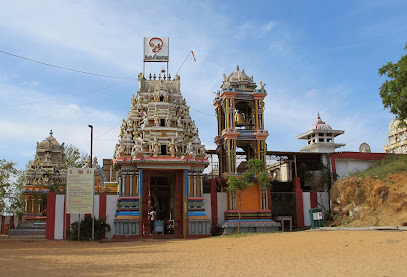
Kanniya Hot Water Springs
Experience the rejuvenating powers of nature at Kanniya Hot Water Springs in Trincomalee, where relaxation meets stunning natural beauty.
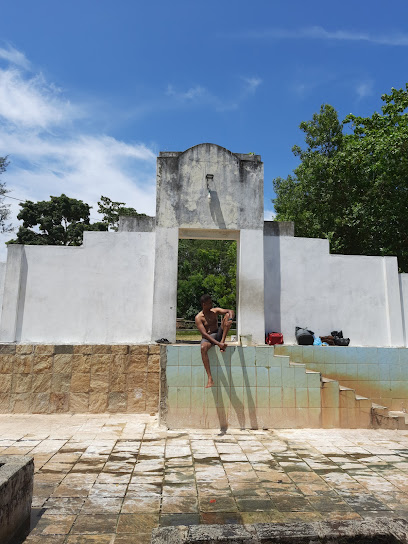
Fort Frederick
Explore Fort Frederick in Trincomalee—a historical fortress offering breathtaking views and a glimpse into Sri Lanka's colonial past.
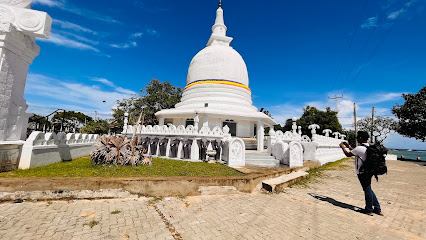
Shri Badrakali Amman Hindu kovil
Explore the enchanting Shri Badrakali Amman Hindu Kovil in Trincomalee, a captivating temple that blends spirituality with stunning architectural beauty.
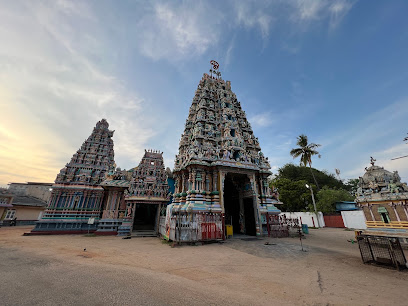
Cafe on the 18th
Discover the flavors of Trincomalee at Cafe on the 18th, where delicious cuisine meets stunning beachside views.
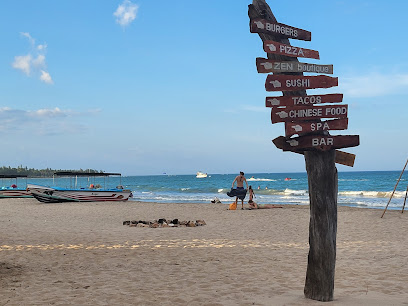
Orr's Hill Army Museum
Explore the rich military heritage of Sri Lanka at Orr's Hill Army Museum in Trincomalee, featuring fascinating exhibits and artifacts.
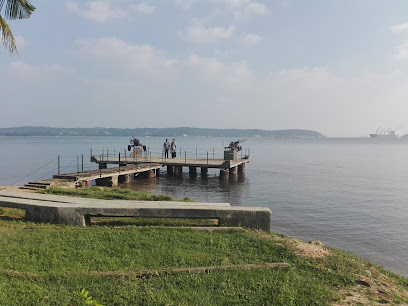
Maritime And Naval History Museum
Discover Sri Lanka's naval legacy at the Maritime and Naval History Museum in Trincomalee, where history and maritime exploration come to life.
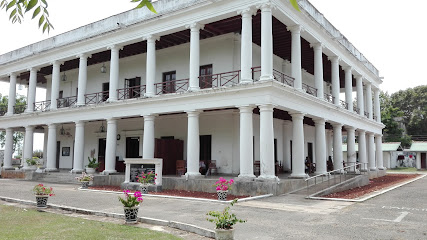
Pigeon Island Diving Centre Trincomalee Sri Lanka
Explore vibrant coral reefs and marine life at Pigeon Island Diving Centre in Trincomalee, Sri Lanka, a top diving destination for all levels.
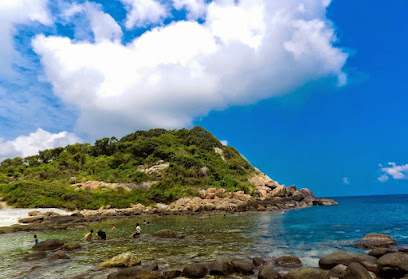
Sri Lakshmi Narayana Perumal Kovil, ஸ்ரீ லக்ஷ்மி நாராயண பெருமாள் கோவில்.
Explore the beauty and spirituality of Sri Lakshmi Narayana Perumal Kovil, Trincomalee's stunning Hindu temple, rich in history and culture.
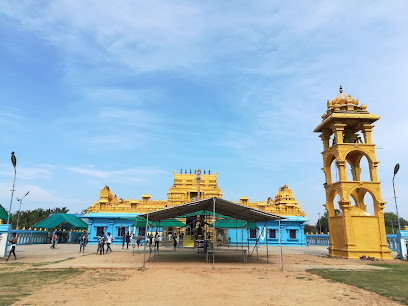
Velgam Vehera Buddhist Temple | වෙල්ගම් වෙහෙර
Experience the spiritual serenity of Velgam Vehera Buddhist Temple, a must-visit cultural landmark in Sri Lanka, rich in history and tranquility.
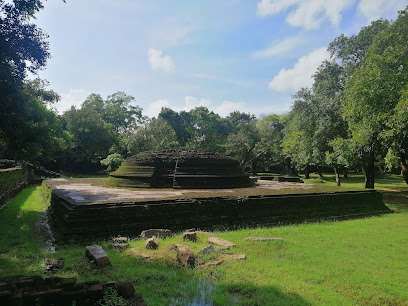
Be Cool Juice Bar & Sea Food Restaurant
Discover the vibrant flavors of Sri Lankan seafood at Be Cool Juice Bar & Sea Food Restaurant in Trincomalee, where fresh ingredients meet breathtaking ocean views.
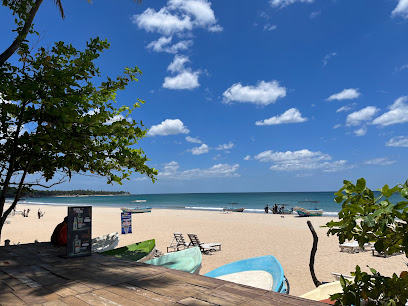
Trinco Lagoon
Discover the tranquility of Trinco Lagoon, a serene hotel in Trincomalee offering stunning views, warm hospitality, and a gateway to adventure.

Dyke Rest
Experience comfort and warmth at Dyke Rest, your perfect lodging choice in Trincomalee for an unforgettable Sri Lankan getaway.

trincomalee town beach
Discover the beauty and cultural richness of Trincomalee Town Beach, a coastal paradise in Sri Lanka perfect for relaxation and adventure.
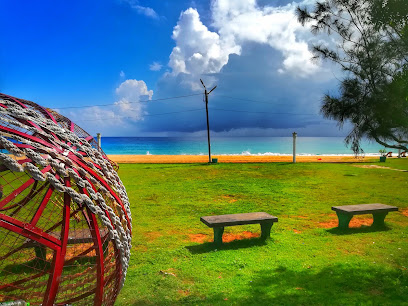
lobster inn
Experience the charm of Trincomalee at Lobster Inn, your cozy guest house retreat offering comfort, local flavors, and easy access to stunning beaches.
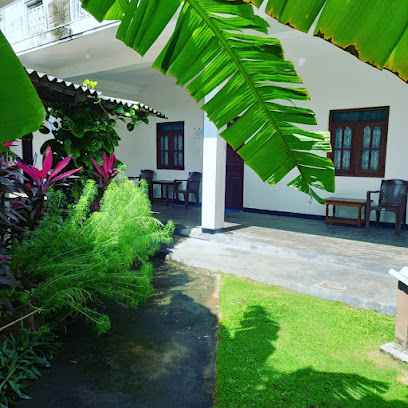
Unmissable attractions to see
Thirukoneswaram Kovil
Discover the spiritual heart of Sri Lanka at Thirukoneswaram Kovil, a stunning Hindu temple with breathtaking ocean views and rich cultural heritage.
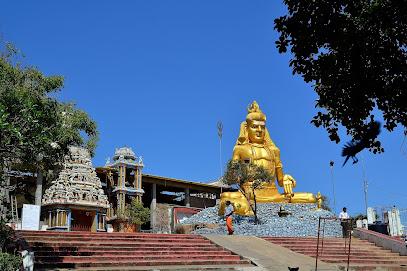
Marble Beach
Experience the tranquility and beauty of Marble Beach in Trincomalee, a perfect escape for sun lovers and adventure seekers alike.

Kanniya Hot Water Springs
Experience the soothing embrace of nature at Kanniya Hot Water Springs, a tranquil retreat in Trincomalee offering rejuvenating thermal waters.
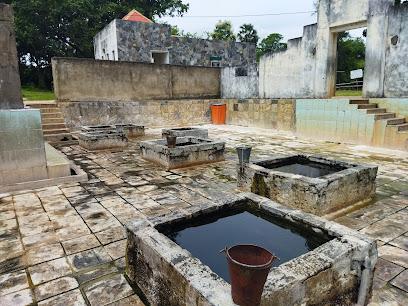
Fort Frederick
Discover Fort Frederick, a historical landmark in Trincomalee showcasing colonial architecture, stunning ocean views, and vibrant local culture.
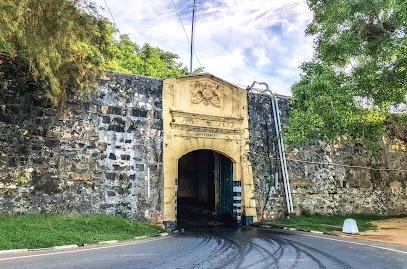
Nilaveli Beach
Experience the pristine beauty and tranquility of Nilaveli Beach in Sri Lanka, a perfect destination for relaxation and water adventures.
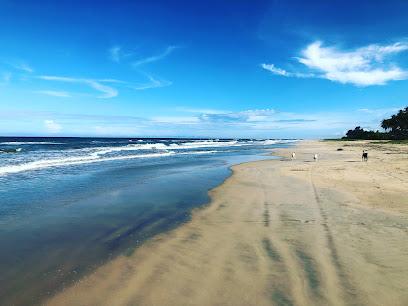
Shri Badrakali Amman Hindu kovil
Explore the serene Shri Badrakali Amman Hindu Kovil in Trincomalee, a stunning temple showcasing vibrant architecture and deep spiritual significance.
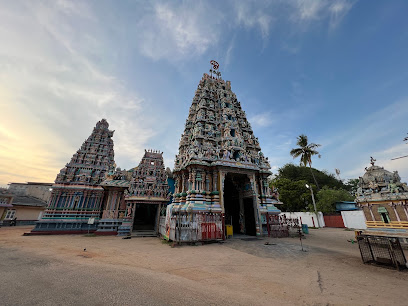
Orr's Hill Army Museum
Discover Sri Lanka's military heritage at Orr's Hill Army Museum, a unique destination blending history with breathtaking views in Trincomalee.

Maritime And Naval History Museum
Explore the rich maritime history of Sri Lanka at the Maritime and Naval History Museum in Trincomalee, a treasure trove of naval artifacts and stories.
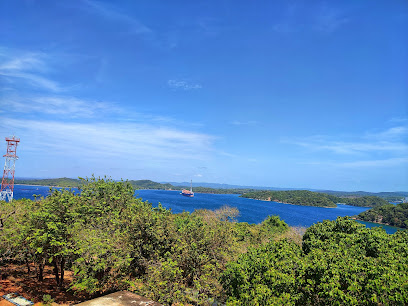
Dutch Bay Beach
Experience the serene beauty and vibrant culture of Dutch Bay Beach in Sri Lanka, a must-visit destination for every traveler.
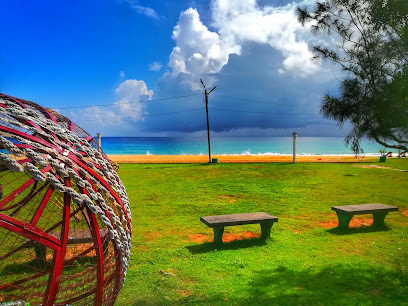
Velgam Vehera Buddhist Temple | වෙල්ගම් වෙහෙර
Explore the serene Velgam Vehera Buddhist Temple, a treasure of Sri Lanka's spiritual heritage and a tranquil escape for travelers.
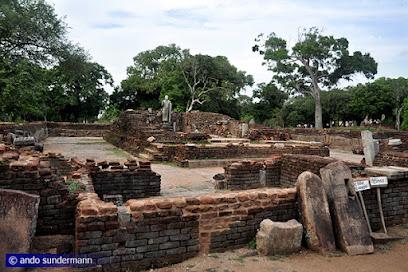
Naval Headworks Sanctuary
Explore the enchanting Naval Headworks Sanctuary, a national park in Sri Lanka brimming with diverse wildlife and stunning landscapes.
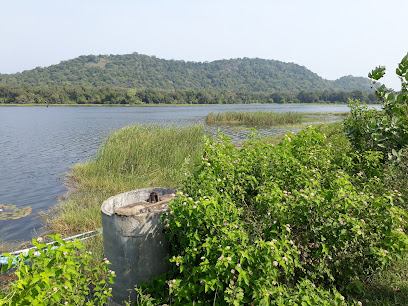
Uppuveli Beach
Discover the tranquility and beauty of Uppuveli Beach, Trincomalee, where golden sands meet crystal-clear waters for a perfect tropical getaway.
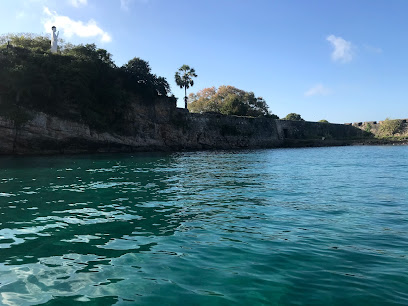
Trincomalee Beach
Discover the natural beauty and adventure at Trincomalee Beach, a stunning destination in Sri Lanka perfect for relaxation and water activities.
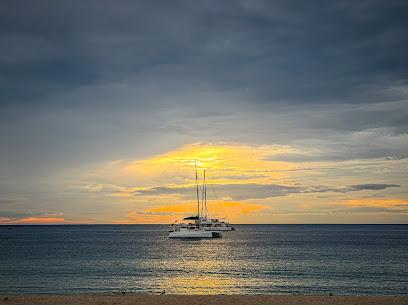
Naval Museum
Discover the vibrant maritime history of Sri Lanka at the Naval Museum in Trincomalee, showcasing fascinating artifacts and stories of naval bravery.
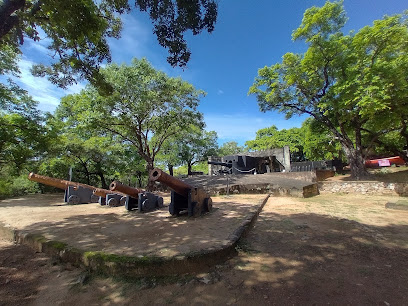
Rawana Abyss
Experience the breathtaking views of Rawana Abyss in Trincomalee, where nature's beauty and adventure collide, creating unforgettable memories.
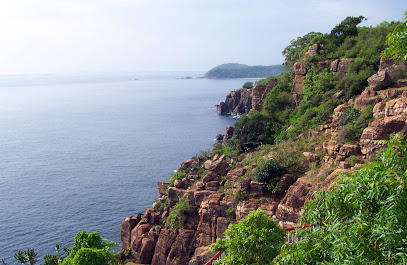
Essential places to dine
Dutch Bank Cafe
Experience the rich flavors of Sri Lanka at Dutch Bank Cafe in Trincomalee - where history meets culinary delight.
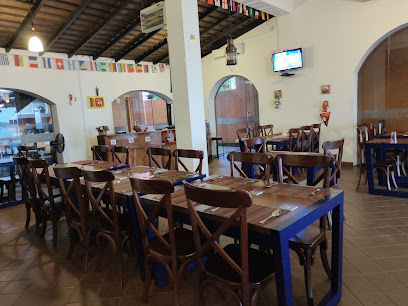
Cafe on the 18th
Experience delightful dining at Café on the 18th in Trincomalee—where local flavors meet breathtaking ocean views.
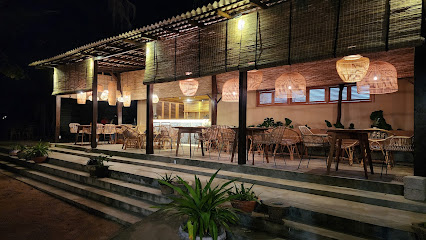
Rice 'n' Curry Restaurant
Experience authentic Asian flavors at Rice 'n' Curry Restaurant in Trincomalee - where every dish tells a story.
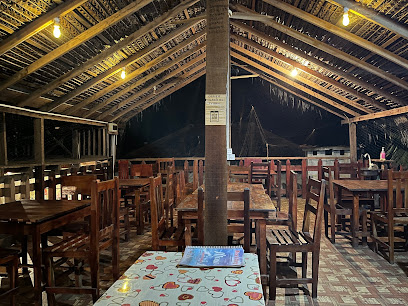
NINA Restaurant Trincomalee
Experience authentic Asian flavors at NINA Restaurant in Trincomalee, specializing in seafood and BBQ amidst breathtaking coastal views.
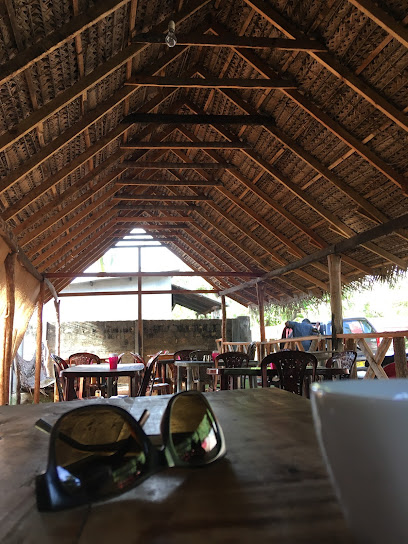
Trinco Lanka Restaurant
Experience authentic Sri Lankan cuisine at Trinco Lanka Restaurant - a culinary treasure in Trincomalee.
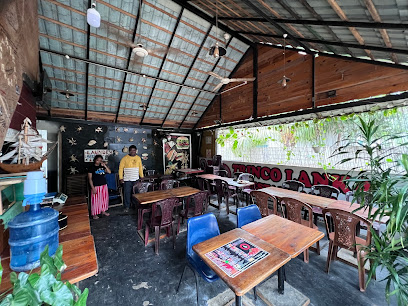
Grean Tulsi
Experience authentic Sri Lankan flavors at Grean Tulsi – a culinary gem in Trincomalee offering delightful dishes and warm hospitality.
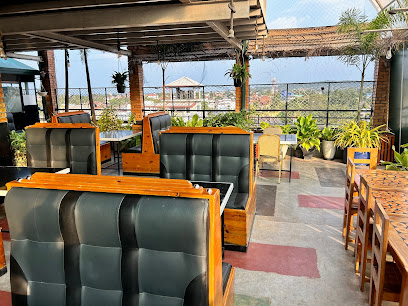
Queen Bee cafe & seafood + vape shop
Discover culinary delights at Queen Bee Cafe & Seafood in Trincomalee—where fresh flavors meet local charm.
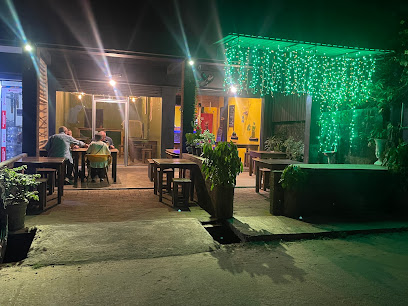
My Hot Burger
Experience delicious gourmet burgers at My Hot Burger in Trincomalee - where taste meets hospitality in a vibrant setting.
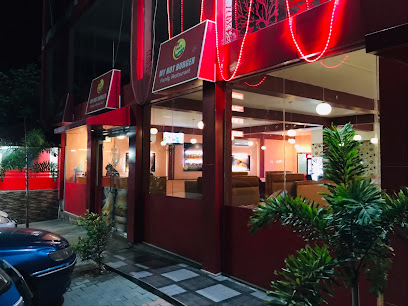
Snack bar hawaii
Experience fresh seafood delights at Snack Bar Hawaii in Trincomalee – where every bite is a taste of Sri Lanka's coastal charm.
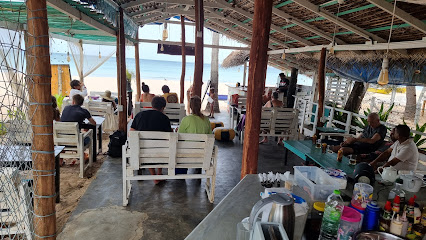
Eastern Lanka Seafood Restaurant
Discover authentic Sri Lankan seafood at Eastern Lanka Seafood Restaurant, where fresh flavors meet stunning coastal views in Trincomalee.
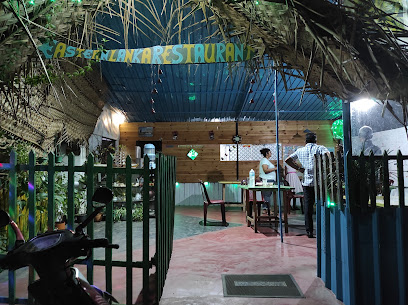
Preni restaurants
Discover authentic Sri Lankan flavors at Preni Restaurants in Trincomalee – where delicious meets affordable.
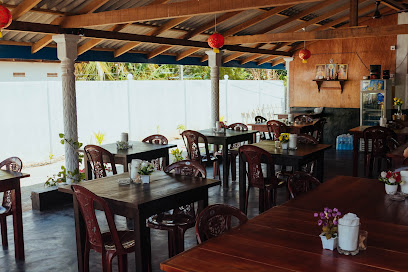
Chamee Sea Food & Chinese Restaurant
Experience the rich flavors of Sri Lanka at Chamee Sea Food & Chinese Restaurant in Trincomalee – where fresh seafood meets tradition.
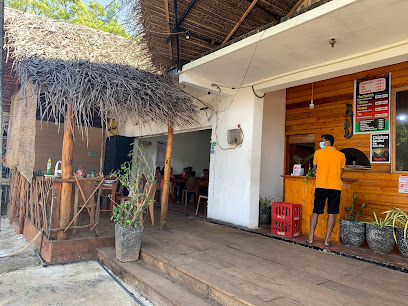
Aachi Suvayotru
Discover family-friendly dining at Aachi Suvayotru in Trincomalee - where delicious food meets a warm atmosphere.
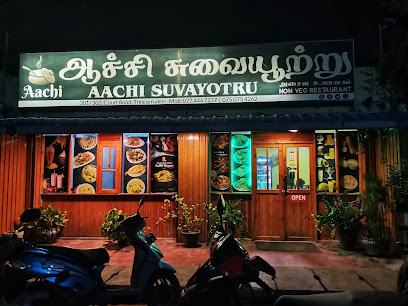
Geeth Me
Experience authentic Sri Lankan flavors at Geeth Me in Trincomalee – where every dish tells a story.
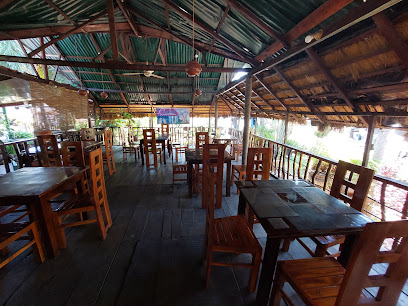
Be Cool Juice Bar & Sea Food Restaurant
Experience authentic Sri Lankan cuisine with fresh seafood and revitalizing juices at Be Cool Juice Bar & Sea Food Restaurant in Trincomalee.
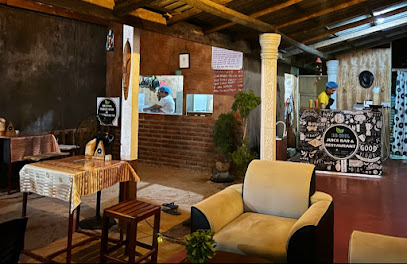
Markets, malls and hidden boutiques
Nawamila's Textiles
Explore the vibrant world of Sri Lankan textiles at Nawamila's Textiles in Trincomalee, where tradition meets modern fashion.
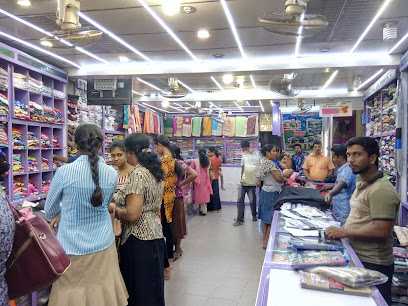
Sandun gems and clothing
Explore the exquisite collection of jewelry, clothing, and local teas at Sandun Gems and Clothing in Trincomalee, a true gem for every traveler.
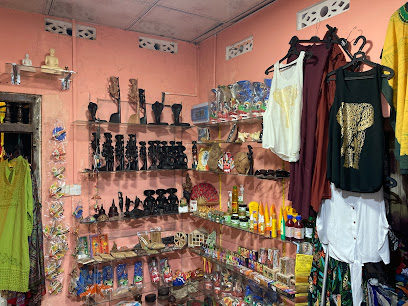
Anjana Traditional Mask
Explore the exquisite artistry of Sri Lanka at Anjana Traditional Mask, offering unique handcrafted masks and cultural treasures.
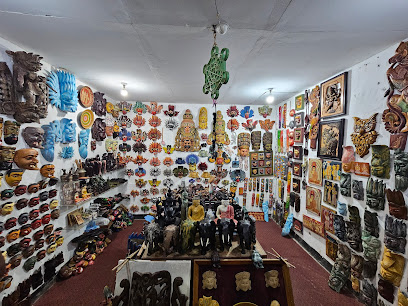
Amazely Gifts
Explore Amazely Gifts in Trincomalee for unique handcrafted souvenirs and local art that embody the spirit of Sri Lanka.
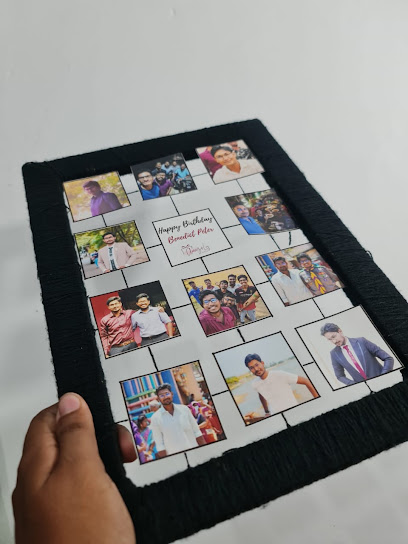
Thassim Jewellers
Explore Thassim Jewellers in Trincomalee for exquisite jewelry and historical antiques, capturing the essence of Sri Lankan craftsmanship.

Aanjaneyar Stores
Discover the flavors of Asia at Aanjaneyar Stores in Trincomalee, offering a wide range of authentic groceries and culinary delights.
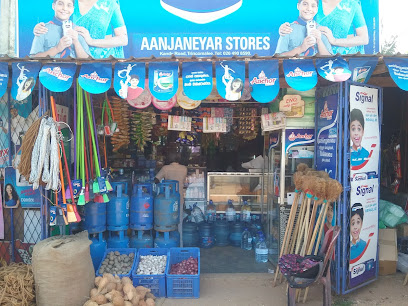
Mahalakshmi Stores மஹாலக்ஷ்மி ஸ்டோர்ஸ்
Discover local flavors and everyday essentials at Mahalakshmi Stores in Trincomalee, your go-to supermarket for a taste of Sri Lanka.
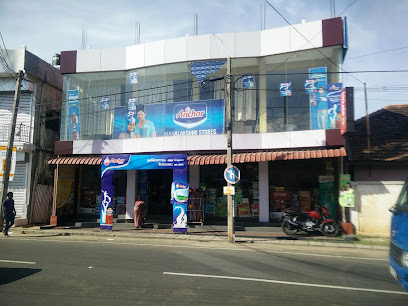
Wanco Prime
Discover a vibrant shopping experience at Wanco Prime, Trincomalee's premier mall offering a diverse range of brands and delightful dining options.
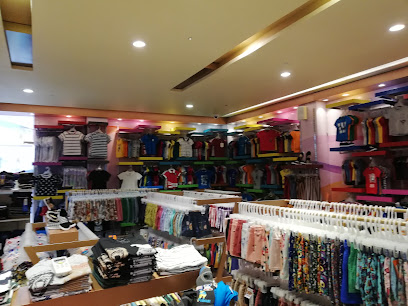
Bestie Gift World
Explore the vibrant charm of Trincomalee at Bestie Gift World, where unique souvenirs and local crafts await every traveler.
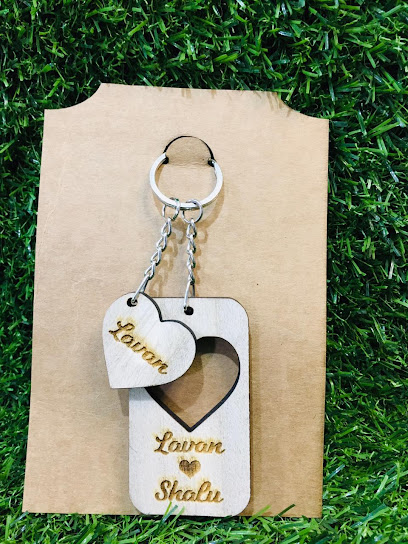
Pillayar Stores
Explore the vibrant flavors of Asia at Pillayar Stores, Trincomalee's premier destination for authentic Asian groceries and culinary delights.
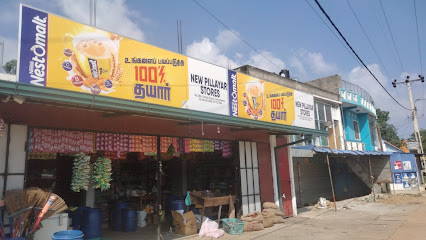
Fazil Stores
Explore Fazil Stores in Trincomalee for an authentic local shopping experience with fresh produce, snacks, and everyday essentials.
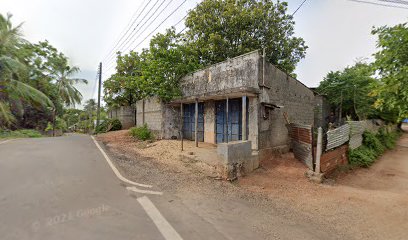
A To Z Traders
Explore a diverse selection of Asian groceries at A To Z Traders in Trincomalee, where authentic flavors meet local culture.
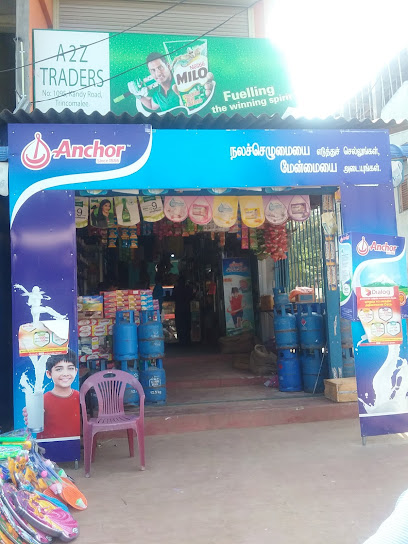
Stop And Shop
Discover a vibrant supermarket in Trincomalee, offering a wide range of local and international products, perfect for all travelers.
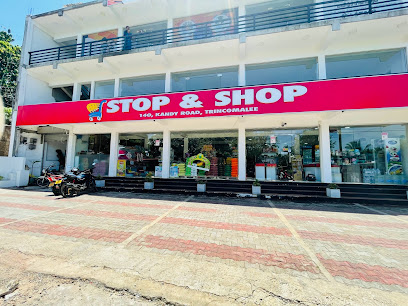
Shifan Emporium
Explore unique Sri Lankan fashion at Shifan Emporium, the must-visit clothing store in Trincomalee offering styles for everyone.
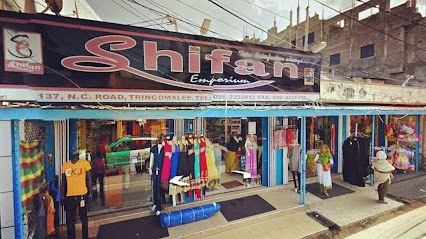
Pradeepa cool spot
Discover Pradeepa Cool Spot in Trincomalee for an authentic shopping experience filled with Sri Lankan culture and vibrant local products.
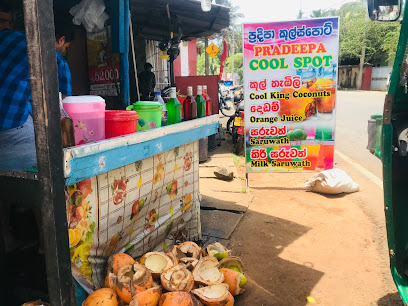
Essential bars & hidden hideouts
Fernando's Bar
Experience the vibrant atmosphere and authentic flavors of Trincomalee at Fernando's Bar – a perfect blend of relaxation and local culture.
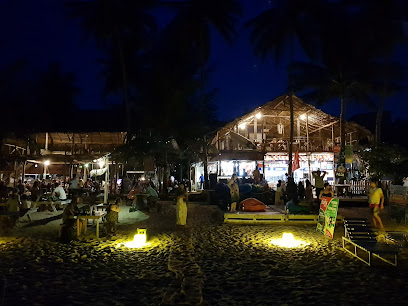
Snack bar hawaii
Explore the vibrant flavors of the sea at Snack Bar Hawaii, Trincomalee's premier seafood restaurant, blending fresh ingredients with local charm.
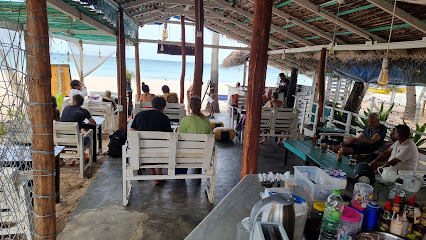
Be Cool Juice Bar & Sea Food Restaurant
Discover the vibrant flavors of Sri Lankan seafood with refreshing beverages at Be Cool Juice Bar & Sea Food Restaurant in Trincomalee.
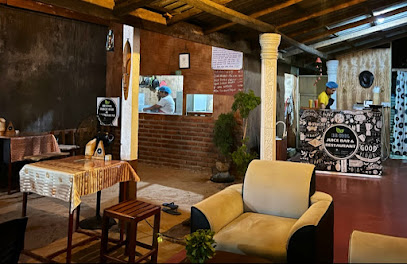
Pool Bar and Restaurant
Experience the best of local and international grill cuisine in a serene poolside setting in Trincomalee.
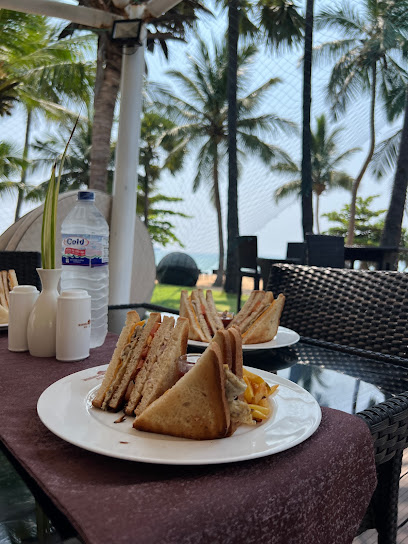
Jayaruk Wine Store
Experience the charm of Jayaruk Wine Store in Trincomalee, where quality wines and a cozy atmosphere await every visitor.
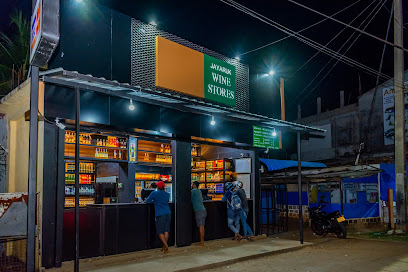
Sivas wine stores
Discover the charm of Sivas Wine Stores in Trincomalee, where exquisite wines meet a vibrant local atmosphere.
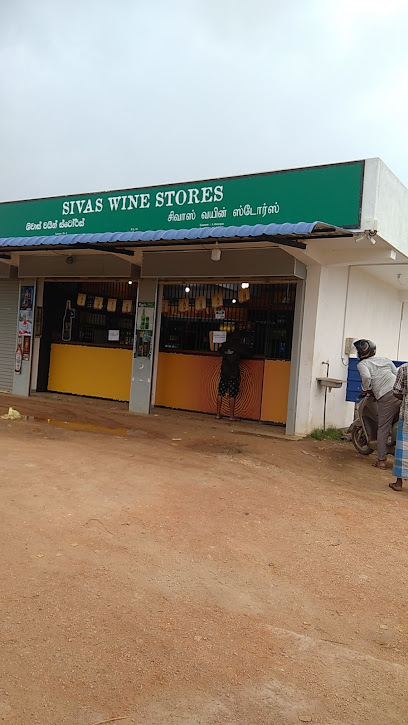
Trinco Juce bar
Discover Trinco Juce Bar in Trincomalee, a vibrant bar offering fresh juices and cocktails in a lively, tropical atmosphere, perfect for relaxation and enjoyment.
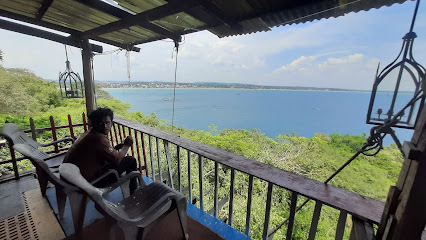
The Trinco Stores
Discover the vibrant atmosphere and exquisite drinks at The Trinco Stores, a top bar in Trincomalee for tourists seeking local spirits.
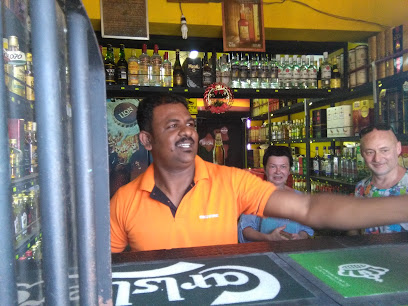
Freewin Resturent and Bar
Discover the flavors of Sri Lanka at Freewin Restaurant and Bar in Trincomalee, where vibrant ambiance meets delectable local cuisine.
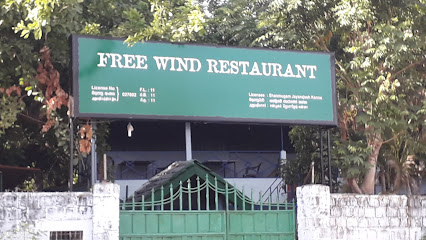
Naval Institute
Discover the vibrant atmosphere and stunning views at Trincomalee's Naval Institute Bar - a must-visit for every traveler.
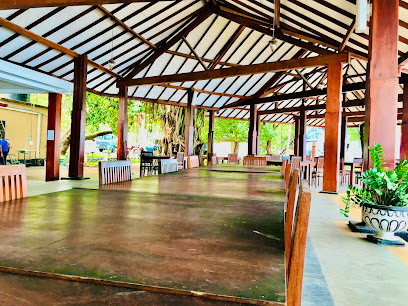
Public Services Club
Discover the vibrant nightlife at Trincomalee's Public Services Club, where locals and tourists come together for unforgettable evenings.
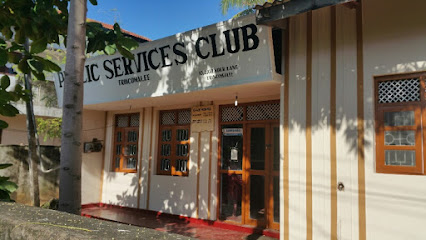
Poco m3
Discover the vibrant nightlife of Trincomalee at Poco M3, a bar offering a perfect blend of local and international drinks in a lively atmosphere.
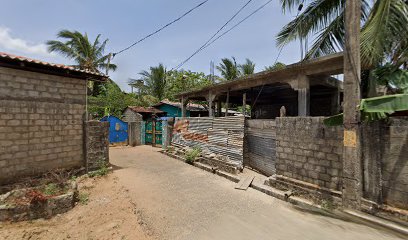
Miranda
Experience the vibrant nightlife of Miranda, a cozy bar in Trincomalee, perfect for relaxation and socializing with stunning coastal views.
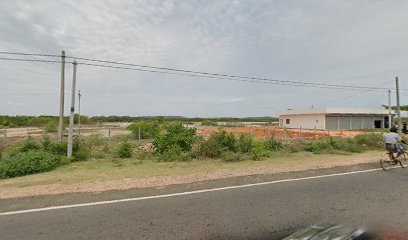
Anna Cool Bar
Discover the charm of Anna Cool Bar in Trincomalee, where refreshing drinks meet stunning views in a relaxed tropical paradise.
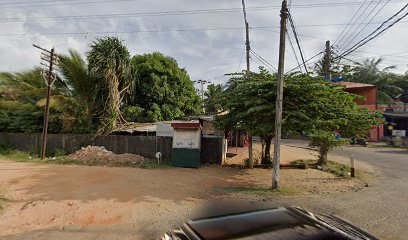
Local Phrases
-
- Helloසුභ උදෑසනක්
[suba udēsanak] - Goodbyeබයි
[bäi] - Yesඔව්
[ōv] - Noනෑ
[nē] - Please/You're welcomeකරන්න/ආයුබෝවන්
[karanna/āyubōvan] - Thank youස්තූතියි
[sthūthiyi] - Excuse me/Sorryසමාවේ/කිව්රිත්වයි
[samāwē/kiviritwayi] - How are you?ඔයට කොහොමද?
[ōyat kōhomada?] - Fine. And you?හොඳයි. ඔය?
[hōdayi. ōya?] - Do you speak English?ඔය ඉංග්රීසි කතා කරයිද?
[ōya iṅgrīsi kathā karayida?] - I don't understandමට දැනුම් වෙනවාද?
[mat dānum vēnavāda?]
- Helloසුභ උදෑසනක්
-
- I'd like to see the menu, pleaseකරුණාකොළ බලන්න
[karunākol balanna] - I don't eat meatමම සාදනවාද?
[mama sādanavāda?] - Cheers!සුභග්යකත්වයි!
[subhagyaktwayi!] - I would like to pay, pleaseකරුණාකොළ ගෙවෙනවාද
[karunākol gēvēnavāda]
- I'd like to see the menu, pleaseකරුණාකොළ බලන්න
-
- Help!උකුල්ලාගෙනවාද!
[ukullagēnavāda!] - Go away!පිහිටනවාද!
[pihitanavāda!] - Call the Police!පොලිස් කරනවාද!
[polis karanavāda!] - Call a doctor!වෛර කරනවාද!
[vaira karanavāda!] - I'm lostමම අයාලෙනවාද
[mama ayalēnavāda] - I'm illමම අයාලෙනවාද
[mama ayalēnavāda]
- Help!උකුල්ලාගෙනවාද!
-
- I'd like to buy...නම්කොළ මෙන්නෙනවාද
[namkol mennenavāda] - I'm just lookingමම බලාගෙන යනවාද
[mama balagēna yanavāda] - How much is it?එය කොහොමද?
[eya kōhomada?] - That's too expensiveඑය අගනාවයි
[eya aganāvayi] - Can you lower the price?මුලු කරනවාදද?
[mulu karanavādada?]
- I'd like to buy...නම්කොළ මෙන්නෙනවාද
-
- What time is it?කොහොමද?
[kōhomada?] - It's one o'clockඑක
[eka] - Half past (10)දහය
[dahaya] - Morningපැම්බරවාද
[pēmbaravāda] - Afternoonපස්තියවාද
[pastiyavāda] - Eveningවයිල්ටයි
[vayiltayi] - Yesterdayඊයේ
[īyē] - Todayඅද
[ada] - Tomorrowහෙට
[hēta] - 1එක
[eka] - 2දෙක
[dēka] - 3තුන
[thuna] - 4හතර
[hathara] - 5පහ
[paha] - 6හය
[haya] - 7සිය
[siya] - 8අට
[ata] - 9නන්
[nann] - 10දහය
[dahaya]
- What time is it?කොහොමද?
-
- Where's a/the...?හාන්දෙනවාද...?
[hāndēnavāda...?] - What's the address?ලිපිනය කුමක්ද?
[lipinaya kumakda?] - Can you show me (on the map)?මම දක්ෂඩයිද?
[mama dakshadayida?] - When's the next (bus)?ඊළඟ යාපනය කොතයි?
[īlagata yāpanaya kōthayi?] - A ticket (to ....)ප්රවේෂය...
[pravēshaya...]
- Where's a/the...?හාන්දෙනවාද...?
History of Trincomalee
-
Trincomalee's natural harbor has been a significant maritime hub for over two millennia. Known as Gokanna in ancient times, it served as a pivotal port for trade between East and West, attracting merchants from China, Persia, and Rome. The port's strategic location made it a coveted asset for various empires and colonial powers.
-
The Koneswaram Temple, perched atop Swami Rock, dates back to the 3rd century BCE and is one of the most revered Hindu temples in Sri Lanka. The temple is dedicated to Lord Shiva and has been a site of pilgrimage for centuries. It was destroyed by the Portuguese in 1622 and later reconstructed in the 20th century, retaining its spiritual significance and architectural grandeur.
-
Trincomalee's strategic importance drew the attention of European colonial powers. The Portuguese were the first to establish a fort in the early 17th century, followed by the Dutch and the British. The Dutch Fort Frederick, built in 1623, still stands today and offers a glimpse into the colonial past of the region.
-
During World War II, Trincomalee gained immense strategic importance as a naval base. The British Royal Navy used it as a key point in the Indian Ocean, and it was the site of a significant Japanese air raid in April 1942. The remnants of wartime bunkers and fortifications can still be seen, bearing testimony to its military significance.
-
Trincomalee is a cultural melting pot with a diverse population comprising Tamils, Sinhalese, and Muslims. This cultural diversity is reflected in the city's religious sites, festivals, and local cuisine. The annual Koneswaram Temple festival and the Trincomalee Hindu Cultural Hall are pivotal in preserving and celebrating the region's rich cultural heritage.
Trincomalee Essentials
-
Trincomalee is accessible by air, rail, and road. The nearest airport is Bandaranaike International Airport in Colombo, approximately 260 kilometers away. From Colombo, you can take a domestic flight to China Bay Airport, located about 7 kilometers from Trincomalee. Alternatively, you can take a train from Colombo Fort Railway Station to Trincomalee; the journey takes approximately 8 hours and offers scenic views. Buses and private taxis are also available for road travel, with the drive taking around 6 hours.
-
Within Trincomalee, local transportation options include tuk-tuks, taxis, and buses. Tuk-tuks are a popular and inexpensive way to get around the city. Taxis are readily available and can be booked through hotel services or ride-hailing apps. Public buses connect Trincomalee to nearby towns and cities. For a more flexible option, consider renting a car or a motorbike.
-
The official currency in Sri Lanka is the Sri Lankan Rupee (LKR). Credit cards are widely accepted in hotels, restaurants, and larger shops, but it is advisable to carry cash for small businesses and local markets. ATMs are available throughout Trincomalee, but ensure you have enough cash for remote areas. Currency exchange services are also available at banks and authorized money changers.
-
Trincomalee is generally safe for tourists, but it is important to take standard precautions. Avoid isolated areas and beaches at night. Be cautious of petty crimes like pickpocketing, especially in crowded places such as markets and bus stations. Specific areas to exercise caution include the bus terminal and some parts of the central market. Always keep your belongings secure and be mindful of your surroundings.
-
In case of emergency, dial 119 for police assistance or 110 for medical emergencies. The main hospital in Trincomalee is located on Konesar Road and offers comprehensive medical services. Pharmacies are available for minor health issues and over-the-counter medications. It is advisable to have travel insurance that covers medical emergencies. For consular assistance, contact your embassy in Colombo.
-
Fashion: Do dress modestly, especially when visiting religious sites. Avoid wearing revealing clothing. Religion: Do respect local customs and traditions. Always remove your shoes and cover your head when entering temples. Public Transport: Do be respectful and give up your seat to elderly passengers. Don’t eat or drink on public transport. Greetings: Do greet people with a smile or a slight bow. A handshake is acceptable in more formal settings. Eating & Drinking: Do try local delicacies and accept food offerings graciously. Don’t refuse hospitality, as it is considered impolite.
-
To experience Trincomalee like a local, visit the vibrant markets where you can buy fresh seafood and traditional Sri Lankan goods. Engage with locals, as they are often friendly and eager to share stories about their culture. Don’t miss visiting the Koneswaram Temple, Lover's Leap, and the beautiful Nilaveli Beach. For a unique experience, take a boat ride to Pigeon Island National Park for snorkeling and marine life observation.
Trending Landmark in Trincomalee
-
Thirukoneswaram Kovil
-
Kanniya Hot Water Springs
-
Fort Frederick
-
Shri Badrakali Amman Hindu kovil
-
Cafe on the 18th
-
Orr's Hill Army Museum
-
Maritime And Naval History Museum
-
Pigeon Island Diving Centre Trincomalee Sri Lanka
-
Sri Lakshmi Narayana Perumal Kovil, ஸ்ரீ லக்ஷ்மி நாராயண பெருமாள் கோவில்.
-
Velgam Vehera Buddhist Temple | වෙල්ගම් වෙහෙර
-
Be Cool Juice Bar & Sea Food Restaurant
-
Trinco Lagoon
-
Dyke Rest
-
trincomalee town beach
-
lobster inn
Nearby Cities to Trincomalee
-
Things To Do in Polonnaruwa
-
Things To Do in Sigiriya
-
Things To Do in Anuradhapura
-
Things To Do in Kandy
-
Things To Do in Jaffna
-
Things To Do in Nuwara Eliya
-
Things To Do in Ella
-
Things To Do in Negombo
-
Things To Do in Colombo
-
Things To Do in Bentota
-
Things To Do in Hikkaduwa
-
Things To Do in Matara
-
Things To Do in Galle
-
Things To Do in Mirissa
-
Things To Do in Unawatuna













